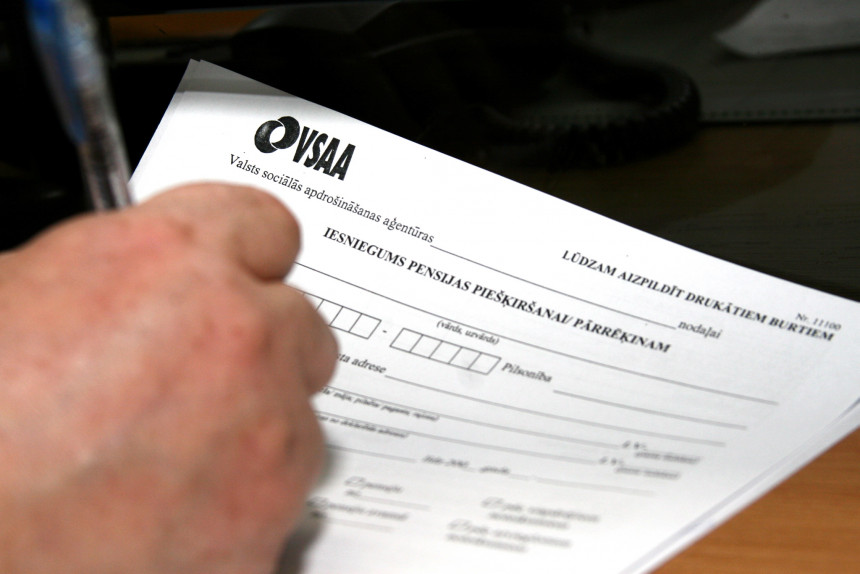The length of service will not be lost after receiving the downtime benefits

Thousands of Latvians currently receive various types of benefits related to the Covid-19 emergency, from which no social contributions are made. This automatically means that this downtime of an able-bodied person is not included in the length of service. The Social and Employment Matters Committee of the Saeima has now conceptually supported the amendments to the law On State Social Insurance to equate benefit periods for people who are provided with support during the emergency situation with the length of insurance.
Currently not included in the length of service
During the Covid-19 pandemic, various types of support were introduced in Latvia for several groups of persons - downtime benefit and support for downtime, downtime assistance benefit, unemployment assistance benefit, continuation of parental benefit, young specialist benefit and sickness assistance benefit. Mandatory state social insurance contributions are not deducted from these benefits, therefore the benefit periods do not currently constitute an insurance period for a person, experts of the Ministry of Welfare explain.
In order to be entitled to a state pension, according to the Pension Law, an insurance period of at least 15 years is required (from 2025 it will be 20 years), but for a disability pension - three years. In order to be entitled to sickness, maternity, paternity and parental benefits, according to the law On Maternity and Sickness Insurance, a qualification period is required, i.e., the person must have been socially insured for at least three months in the last six months or six months in the last two years before the month in which the insured event occurred. There are also a number of provisions in the laws on unemployment insurance, occupational diseases and other types of insurance, where the main condition is that a person must have been socially insured and pay social contributions for a certain period of time.
If a person is in downtime, such contributions are not made and the person is not insured.
There is one exception - pension insurance, to which the recipients of the downtime benefit can join voluntarily, but by paying these contributions from the benefit themselves.
Planning to socially insure
Amendments to the law have been developed to discuss how to change the situation in favor of people who are currently unable to work during an emergency and for whom their insurance period is actually interrupted due to the restrictions imposed by the state of emergency. They provide for benefit periods to be treated in the same way as periods of insurance for which the person would have been insured as an employed or self-employed person. In this way, people would not lose their right to social security benefits, insurance benefits and state pensions.
On the other hand, persons who are not socially insured, i.e., recipients of unemployment assistance benefit and young specialist benefit, are intended to be equated with recipients of unemployment benefit, and the periods of these benefits are intended to be equated with the insurance period for pension insurance.
At the same time, the draft law stipulates that no mandatory contributions will be made for these insurance periods, which means that the law will affect the amount of insurance services only insofar as this amount depends on the length of service, i.e., months of benefit will be counted in them. In order for the amendments to the law to enter into force, they must be supported by the Saeima in three more readings.
It will affect tens of thousands of people
Data from the Ministry of Welfare show that there are at least 75,000 people in Latvia who will be positively affected by these changes in the law. 55,201 people received the downtime benefit in the state of emergency last year and by mid-January this year - another 27,556 people. 9051 people have received the downtime assistance benefit, 10,546 people have received the unemployment assistance benefit, and about a thousand people receive the continuation of the parental benefit. The number of recipients of the young specialist benefit is comparatively less - 94 persons and so is the number of recipients of sickness benefit - 295 people.
*****
Be the first to read interesting news from Latvia and the world by joining our Telegram and Signal channels.
